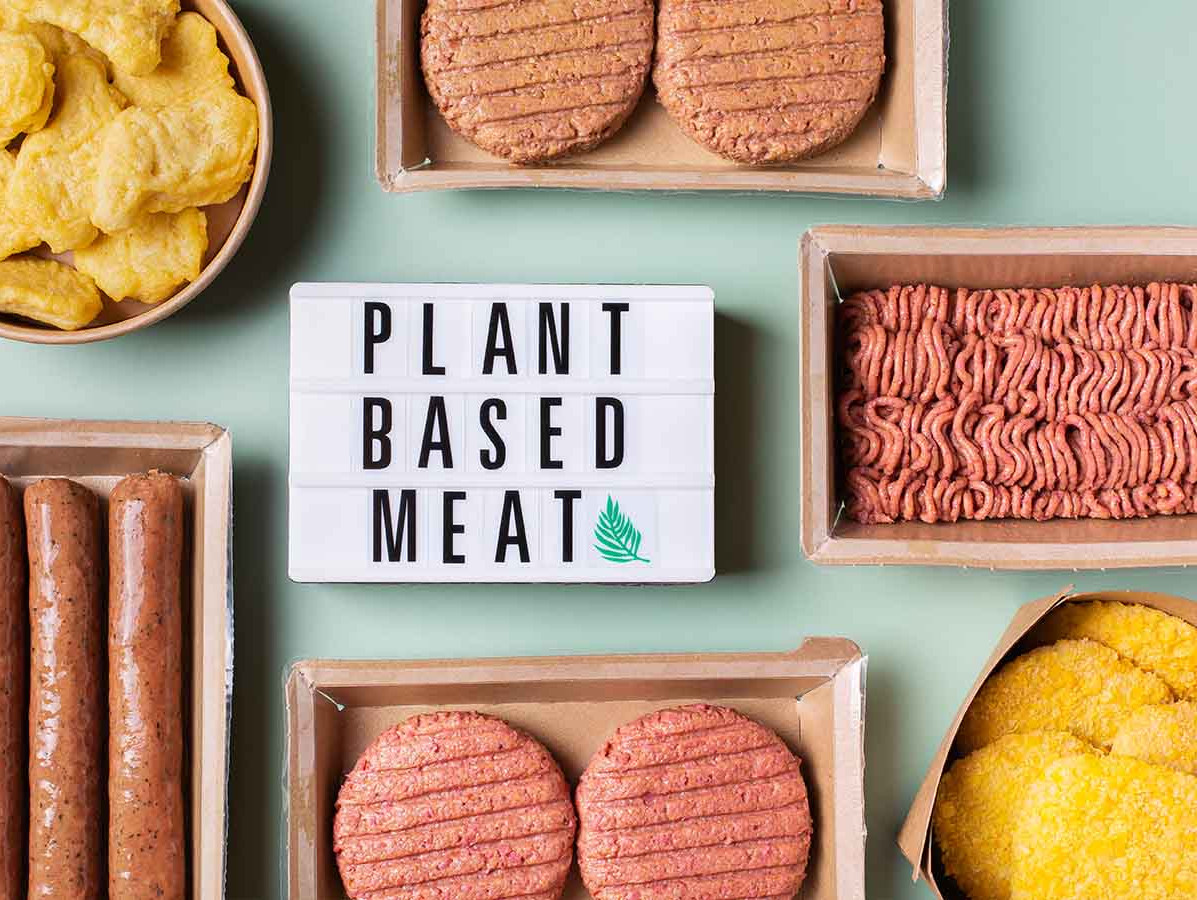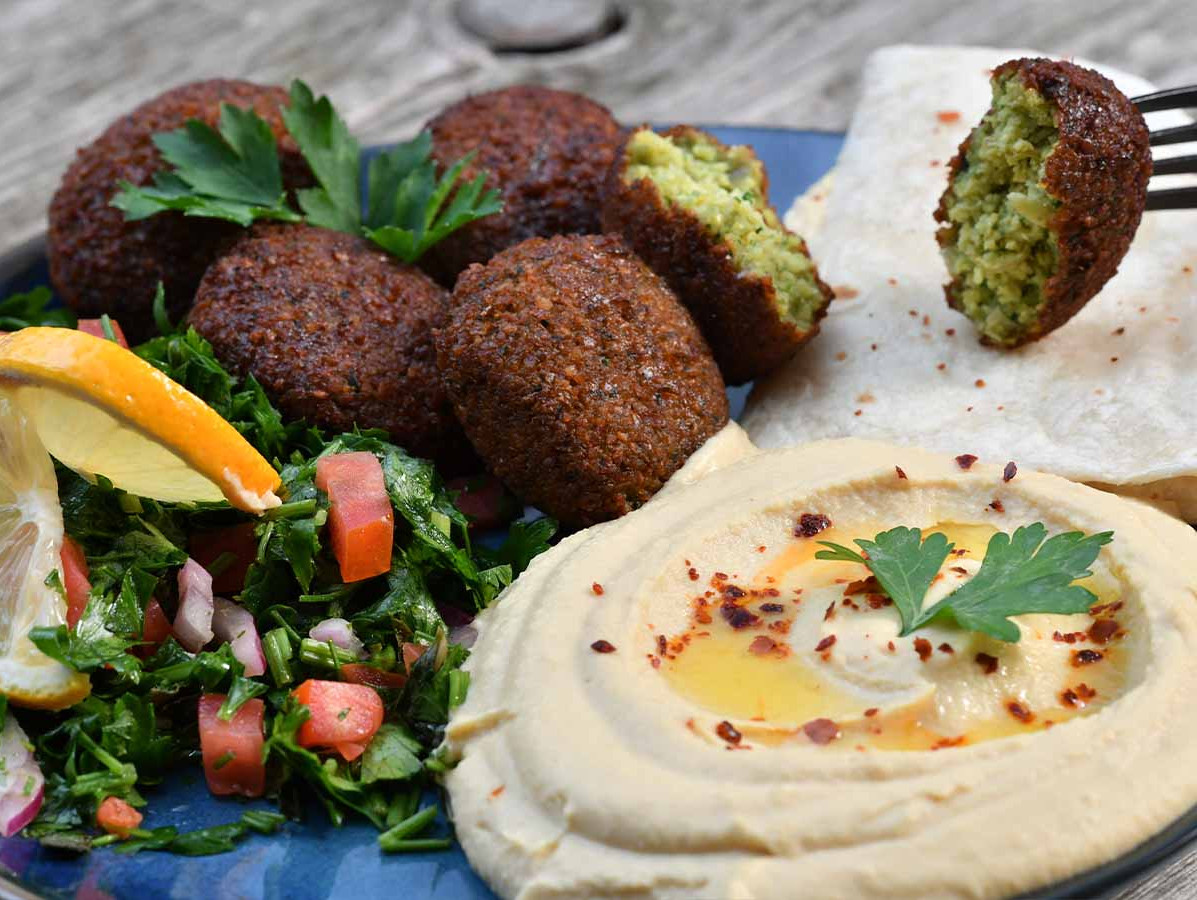
'The hype of meat substitutes seems to be over,' Rabobank reported in a report published in June 2023. 'Get ready for boredom' the bank warned further on in the report. Is that true? What does the market itself think about it? Is it getting boring in the plant-based business? Or is there room for innovation, surprise and improvement?
Growth forecasts for meat substitutes were high in 2021: by 2035, the European market for this product group would increase eightfold, according to Rabobank. Two years later, that forecast has been substantially revised by the same bank. Meat substitutes are under pressure. Sales volume fell by 2.5% in the Netherlands last year. In the US and the UK, sales fell even harder. Beyond Meat, for example, saw a sharp drop in sales; net sales in Q2 2023 were 31% lower than a year ago. How should this product group move forward? We discuss it with four experts.
Daan Vetters is Sales Manager QSR at Schouten Europe - specialist in plant-based protein, with full focus on private label. The company was the first Dutch party to start developing meat substitutes in 1990.
Jaap Harkema, Business Development Plant-based Meat, and Akkelien Vermue-Tjalsma Strategic Marketing Manager, both work at Royal Avebe - supplier of raw materials and ingredients (starch, fibre and protein) from the potato and developer of end products for customers.
Matthijs Nieuwkoop is Product and Development Management at Jan Zandbergen Group; the meat processor that additionally started producing meat substitutes in 2019, including the brands PLNT, Moving Mountains and Veggie Lovers.
Daan Vetters (Schouten Europe): "Hypes follow a predictable trajectory, according to the Gartner hype cycle. After the discovery of a new technology or product group, expectations are set high by default and further inflated by media attention. Startups enter the market with the necessary drumbeat. However, they often launch their innovations too early in development. As a result, consumers become disillusioned: a decline follows. We are now in that phase with meat substitutes. The decline is exacerbated by falling world market prices, rising costs and frugal consumers. After such a characteristic downturn, according to Gartner, a hype may or may not grow into a trend. We expect that meat substitutes do become a trend and, for some products, already are. There are lots of factors driving a plant-based diet: think of the stringent climate goals and related legislation, and the push for a healthier lifestyle."
Jaap Harkema (Avebe): "The big 'consumer drivers' behind the protein transition have indeed not disappeared. The category is 'here to stay'. But one that is developing strongly."
Matthijs Nieuwkoop (Jan Zandbergen Group): "I think the hype of new startups is over. So much capital has been pumped into them in recent years: unfortunately mainly into marketing and not necessarily into product development. Investors now want a return on investment, but many startups cannot fulfil their promises. It is time for a more realistic, down-to-earth approach. One in which you grow as a company step by step, but also tap into new market segments, with more focus on renovation rather than quick innovations."
Akkelien Vermue-Tjalsma (Avebe): "Consumers demand improvement, especially of texture and taste. Flexitarians in particular are very critical of these demands. They also want the 'alternative' to look like the original; like meat. Not an easy task for product developers."
'It's time for a more realistic, down-to-earth approach'

Akkelien: "Definitely not! Consumers want variety, that will not change. It's just the art of responding to that in a good way. It's just that things are moving slower than trend watchers expected a few years ago. New technologies take a long time, especially when it comes to capabilities."
'Consumers want variety, that doesn't change'
Matthijs: "The fact that it is going slowly also has to do with the relationship people have with food; that is difficult to change. Millennials and Gen Z are willing to pay more for their food and more often choose convenience. They are going to force the difference. I therefore expect very cool developments, especially on the 'whole cuts' front. Although scaling up in that area is still a big hurdle right now."
Daan: "In the main categories, chicken substitutes and beefburgers, we don't expect very exciting innovations. But we do expect a lot of fine-tuning and incremental improvements. In other subcategories, such as fish and egg substitutes, on the other hand, there is plenty of room for innovation. For instance, we recently launched a new plant-based egg protein."
Jaap: "Functionality is important. We are continuously researching high-quality proteins that, for example, are able to emulsify like milk protein, or gel when heated; just like chicken protein. Very important for a good bite. In plant-based, we also see opportunities for myco-proteins, 3D food printing and also hybrid products, provided they are well positioned in the market. And a lot is happening in the field of cultured meat and precision fermentation. The products you can make with these look promising. However, it will take time before these are widely available and affordable."
Daan: "Yes, for instance that many plant-based products are made of soy. Critical questions are increasingly being asked about that ingredient: is it grown sustainably? Were no rainforests cut down for it? Alternative protein sources such as peas and field beans are less developed and volumes are still small. Yet product development will increasingly focus on them. Consumers will become more open to plant-based products that do not have to resemble meat, I expect. We prefer to use the term 'meat successor' instead of 'meat substitute'. Substitute' has a negative connotation, as if it were a surrogate. When we started making plant-based products over 30 years ago, it was purely from the idea that we wanted to use agricultural crops and plant-based protein sources more efficiently. Unfortunately, the category of substitutes that do not resemble meat is still small, even though we believe most in precisely that, in the long term."
'We prefer to call it 'meat successor' instead of 'meat substitute', it doesn't have to look like meat or fish'
"Daan, totally agree!" responds Jaap. "We can still learn a lot in this area, and borrow from good and tasty vegetarian dishes from foreign cuisines such as Arabic and Indian. If we combine those solutions with our technologies and ingredients, it should be possible to develop tasty new products; also 'standalone products', as we call them; which therefore do not necessarily resemble steak, chicken or tuna."
Matthijs: "An additional issue with plantbased is nutritional value. We can put a lot of proteins in the products; but if they are not digestible, they are of no use to you as a human being. The fact is that vegetable proteins are harder to digest than animal proteins. Variety is important. For our 3D extruded beef and chicken strips, we therefore use a combination of four types of protein: soy, pea, wheat and potato protein. In addition, care institutions, hospitals and caterers have very specific requirements regarding the nutritional value and/or composition of the products. Therefore, we also want to retain full ownership of the recipes and the production process. We do not work with pre-mixes. Only then can we substitute certain ingredients according to the customer's wishes.”
Jaap: "Another criticism is that current meat substitutes are often ultra-processed, with long lists of ingredients. Consumers rightly question this: is it healthy? Sustainable? Allergen-free is also increasingly an expressed desire. Our ingredients from the potato, such as protein, fibre and also most starches, have no E number and do not have to be labelled as allergenic according to EU legislation. They can thus contribute to a shorter, more recognisable ingredient list in various applications."
Matthijs: "Also, why use more ingredients than strictly necessary? I don't really understand that. Although that whole 'clean labelling' thing is also hype in my opinion; we prefer 'clear labelling'. Consumers need to understand why certain ingredients are needed. E-numbers are the most tested and safest ingredients available, oxygen also has an E-number. We sometimes get asked if we can substitute the ingredient methyl cellulose. The answer is 'yes, in some products you can, but in others the fibre is essential for good bite, texture and taste'. And it behaves like other fibres during digestion. With us, you can already test from relatively low volumes; that turns out to be very relevant for companies that want to use new ingredients."
Daan: "If we want to offer a fully-fledged alternative, we as producers will have to compete with meat not only on taste, but also on price. This is difficult, because both climate issues and geopolitics play a big role in this. There are many uncertainties. Because of the war in Ukraine, it took us a lot of effort to find the volumes of sunflower oil we need. You can also question whether it is smart to be so dependent on China. We therefore believe in growing ingredients more locally."

Matthijs: "In 5 to 10 years, there will definitely be more products on the shelves based on whole muscle parts. In the short term, however, these 'whole cuts' will still be too expensive. Precision fermentation and myco-proteins are the future. That consumption behaviour will change is certain; partly because climate change is increasingly perceived as real. Temperature records are falling across the globe, storms and downpours are becoming more intense. Mankind is realising that it is not five to midnight, but five past twelve. Hybrid products can be an intermediate step in the transition to a different diet."
Jaap: "We will start combining technologies, ingredients and processing more often, because with cultured meat you do not yet have a steak and with only a vegetable milk protein you do not have an alternative for cheese. In the short term, I mainly expect many small improvements in texture, partly due to the maturing of technologies such as 3D food printing. Furthermore, I foresee a broadening of the range; more hybrid products and more alternatives to fish."
Akkelien: "And also rationalisation of the range. There are a lot of hamburger variants on the shelves; that number will decrease. Only the best and tastiest will remain. There is still plenty of room for growth. For really good tasty products, there is always extra space on the retail shelves. Only about 2% of the meat market has been 'replaced' by plant-based products. Even if we manage to increase that tenfold, it is still only 20% of the total. Moreover, we believe that stand-alone products, the meat successors as Daan calls them, will boost real growth in the future."
"There is nothing against people continuing to eat meat a few times a week," Daan believes. "But we do believe there needs to be a better balance between the categories. For that, we need to work together to convince consumers that plant-based is becoming the standard and meat is the exception. That consumption patterns will change is only a matter of time: a gradual process in which 'out of home' plays an important role. That is where consumers come into contact with innovations, become enthusiastic, and then try them at home. In our opinion, the vertical chain should join forces much more, from local agriculture and producers to retailers and consumers. It's about co-creation; working together with customers, business partners, startups, chefs, academics and consumers."
Jaap: "Making this transition successful is indeed about teamwork. You can't do this by yourself. We have to realise that everyone holds a piece of the key."
Source: Vakblad Voedingsindustrie 2023